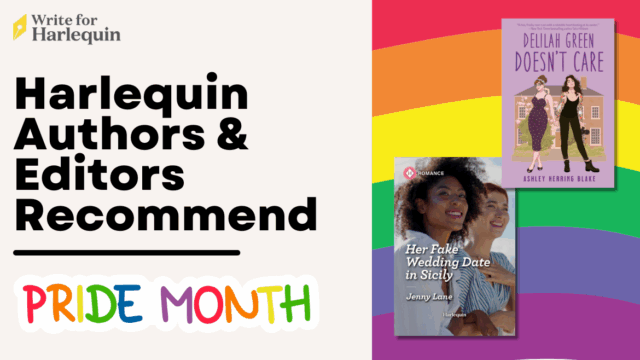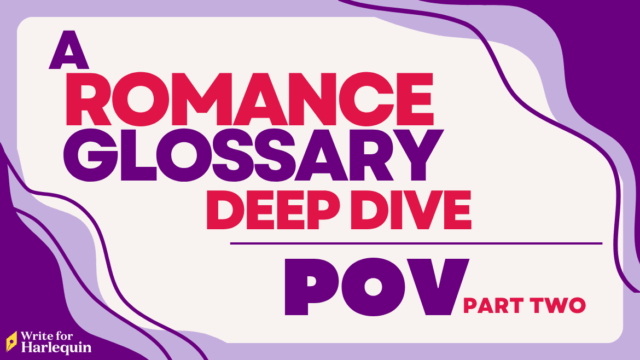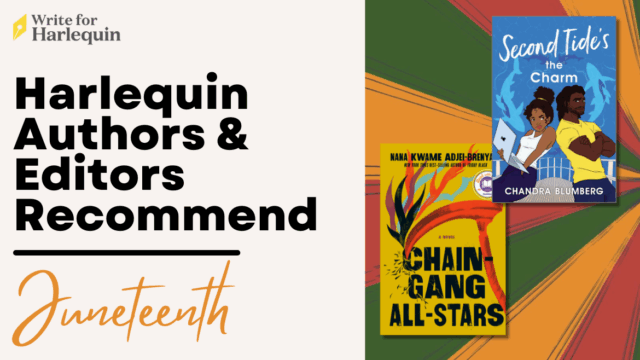by Grace Thiele
Hello, dearest authors! This week in an extremely wind-swept London, I’ll be writing about how to blow editors away with thrilling new takes on … bestselling themes and hooks!
Now, I’ll let you in on a Harlequin secret, direct from Editorial. In an increasingly competitive romance fiction market, every single book has to make an impact – it has to grab a reader’s attention, right from the title! And our readers so often know what they want: if they’re in the mood for a secret baby story, they’re going to be looking for it on the cover. Giving your editors a really strong hook is the quickest way to entice readers to pick up your book.
I know you barely need a reason – but read, read, read! Start with the series you’re targeting, but keep an eye on Harlequin overall, as well as other romance. What themes do you see coming up, again and again and again? Read the series guidelines on Submittable – what are editors already asking for? Are you seeing lots of babies, marriages of convenience, couples reunited, single dads, friends to lovers, or runaway brides? The odds are that if it’s coming up repeatedly, it’s a reflection of readers’ tastes and what sells well. And that’s a pretty good place to start, particularly as an aspiring author, looking to sell a book to series.
Having said that, we’re always looking for new ideas, to be constantly innovative and find the next big thing. Be imaginative! If you can see something that we’ve missed, please write it – although it can be a risky strategy, if you think readers will love it, we want to know.
Some of our romances feature hooks that are quite specific to that series. For example, classic themes in Romantic Suspense include revenge and espionage! While Special Edition features cowboys and reunion romances, as well as broader hooks such as brides and babies. Once you decided on a hook or theme for your story, it’s time to make it yours. A Harlequin series story guarantees a certain reading experience – but you have the power to make it unique, to make it relevant to readers’ lives, to make it memorable.
Characterisation is a great place to start – every person is as unique as every character, and there is a wealth of human experience to draw upon. For instance: your Texan heiress heroine is about to have the cowboy-next-door’s surprise baby. What will make her decision not to tell him strike a chord with readers? What about this situation will reach them, sat in their armchair by the fire or on a sun lounger at the beach, and make them feel what she’s feeling? What makes that heroine, or hero, relatable, lovable – and unique?
Another way is to add another extra dimension to the situation. Love Inspired is actively acquiring Amish stories, so if this is what interests you, how could you make this situation different? What added factor will scale everything up? Maybe the story takes place in an unusual (but series-appropriate!) setting that shapes how events work out; maybe there’s a time limit on the resolution to escalate the intensity; maybe there’s some unfamiliar external factor that shapes your characters’ internal motivations. This can work really well for connected editorial: what will make readers pick up the next story of your duet or trilogy?
Finally, there’s a lot to be said for author voice – and sadly, that’s the hardest thing to teach. The way you write, the way you put words on a page and craft them and polish them – the way you write dialogue, settings, a character’s inner thoughts – can make any story feel fresh and exciting. The most classic story can be rejuvenated by a really exciting style, an innovative way of putting it on the page.
And that is where I must leave it up to you! It’s all about the power of your imagination – nobody can tell you how to do it. But go on: challenge yourself. Take a minute, think of your favourite hook, the one that you’re most likely to reach for on the shelf. Think of all the ways you’ve seen it done before… and then forget them. What will make your take completely new? What will make it memorable? What will challenge readers’ expectations of what that hook can be, and how it can make them feel?
And that’s all, folks! Next time I’ll be writing about how to get over writer’s block and stay motivated. Cheerio, possums!





